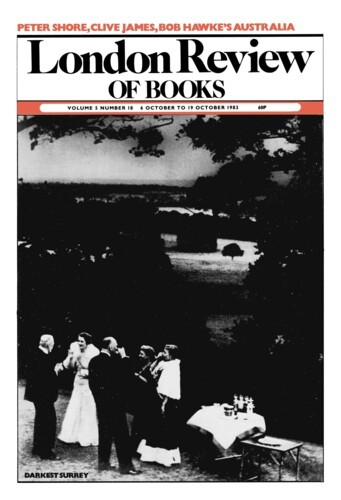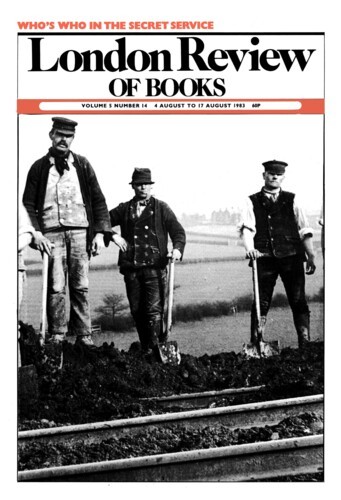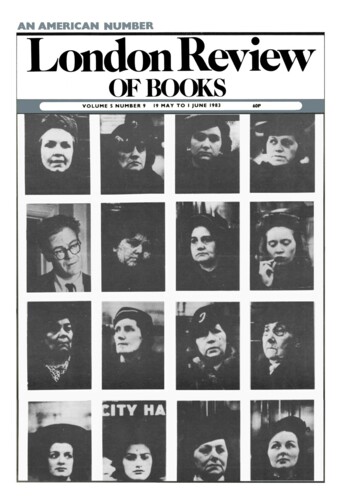Floating
Christopher Driver, 6 October 1983
Of these novels, the one with legs and a long finish, as the wine-tasters say, is Graham Swift’s Waterland, his third. The story – which is at once story and history, erzählung and geschichte – is sustained within, or threaded into, an intricate web of inter-locking images. Or rather, to respect its prevailing metaphor, it floats and develops in an amniotic fluid of local, biological and antiquarian detail. The precision of this detail is hugely relished. The reader emerges dripping from his involuntary immersion, boasting better knowledge of the Fenland lock-system, the ecology of beer, and the life-cycle of the eel, than most people expect novels to supply. At the same time, there is no sense of self-indulgent Dickensian sprawl about these excursuses. They are properly canalised tributaries to the book’s total preoccupation with liquidity. The epigraph is drawn from Great Expectations: ‘Ours was the marsh country.’ But Heraclitus got there first with ‘Everything flows.’–





